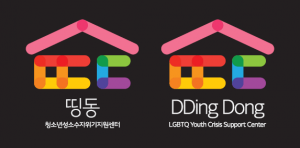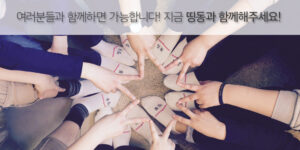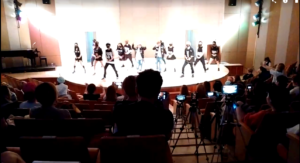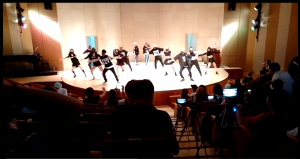Engaged Anthropology Grant: Layoung Shin

While a doctoral student at Binghamton University Layoung Shin received a Dissertation Fieldwork Grant in 2012 to aid research on ”Performing Like a Star: Pop Culture and Sexuality among Young Women in Neoliberal South Korea,” supervised by Dr. Deborah Elliston. In 2016 Dr. Shin received an Engaged Anthropology Grant to aid engaged activities on “Beyond the Rhetoric of Child Protection: Challenging Age Regulations as a Strategy for Queer Youth Movement”.
LGBT Youth Shelter Ddingdong
Ddingdong is the shelter for young queers, which just opened in Winter 2014, supported by nongovernmental organizations. Since this institution is the one that is most closely related with my concern on working class queer youth, I visited Ddingdong in July and met activists, Ryu Eun-chan and two others (Eun-chan was one of my informants during my 2012-3 field research.) From the visiting and the conversations with them, I could learn about the development of the institution that had occurred during the last three years after my visit of South Korea in 2013.

With regards to sharing my research result, we shared the idea that challenging age boundaries for the rights of teenagers to be independent (at least such as opening cell phone, bank account) necessary and required, but it might not be easily achieved sometime soon. Instead, the Ddingdong has been providing alternative resources for helping them, providing counseling, medical care, and temporary places to stay.
My suggestion on queer youth movement also was to build alliances between queer youth and working class (marginalized) youths, so that they can work together for basic concerns on economy, job, and shelter/home, that is fundamental for basic survival of marginalized youth, beyond gender/sexual identity. They have been already constructing connections with one another. I thought, therefore, it is more appropriate for me to support their activities that have already been going on. Therefore, I provide $200 to the Ddingdong, for continuation of their collaboration with other youth organizations for marginalized youth, and find ways to tackle age restrictions at least some areas.
Il-cha and Fan-cos activities
For the second part of my project, I met two groups of il-cha participants who helped me the most during my fieldwork research; Inae and Inyang from the Aplus, and Changong and Heesu from the Exciter. I originally planned to support having a united event of il-cha teams, but I found that their activities have stopped since Spring 2015. As I indicated in my proposal, il-cha activities were in recession due to not only economic difficulties to open their own events, but also due to the increased stereotypes and prejudices on them even among LGBTs in Korea.

While il-cha disappeared from the scene, fan-cos continued. There have been a similar number of participants and events since my fieldwork in 2012-3. But again, the issue for this fan-cos is that it is hard to make it public due to discrimination, stereotypes on their gender nonconformity and non-heterosexuality. They have been promoting and sharing their events only through SNS, like Twitter, which makes it hard for newcomers to find their existence. For instance, even I, who have been following almost all fan-cos events and individuals’ twitter accounts, did not know about some of the events they were preparing during my stay in South Korea. I could know about one of their events, only through Yoohee, my interviewee. Likewise, without personal contacts, exclusive involvement within the community, fan-cos cannot but isolate themselves from potential fan-cos participants, which is the reason the size of fan-cos has been reduced.

That was the reason that I proposed opening up a website. Yoohee, one of the oldest fan-cos event organizers, also agreed on that opening the website for fan-cos would be the best way for promoting fan-cos in the long term. It could be the hub of the events, accumulating information, and resources together. Luckily, Yoohee and two other members of her team are professional website developers, and they agreed to take care of the website. As one of the most popular and oldest fan-cos team and participants, they will take responsibility maintaining the website as well as fan-cos subculture in general. So I decided to hire them for the united fan-cos website development and maintenance for at least one year, as the boost of fan-cos event development.